fakenews
Latest

Facebook's next news feed tweak: ranking 'trusted' sources
Last week Mark Zuckerberg kicked off his year of making sure your time on Facebook is "well spent" by announcing that feeds will refocus on items shared by friends, instead of news. Today the CEO followed up with an announcement that the site will try to identify and highlight "trusted sources" based on community feedback. While the combination of these changes is apparently only going to change the mix of news in feeds from five percent to four percent, its stated claim is to avoid " sensationalism, misinformation and polarization."
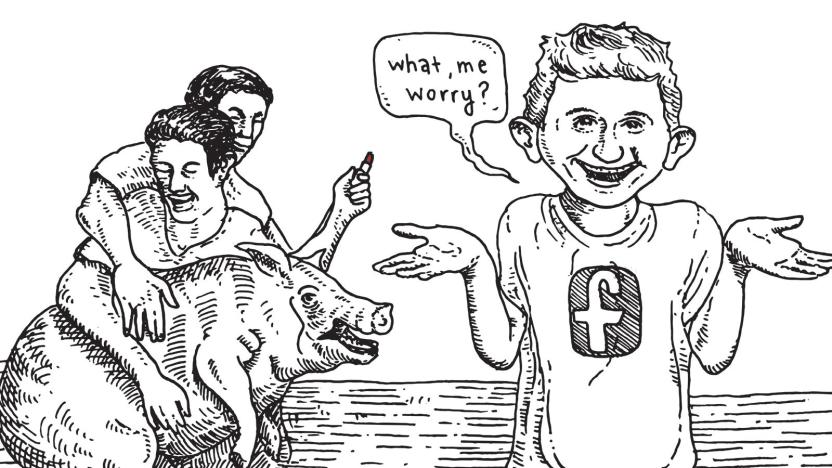
Facebook's fake war on fake news
It's hard watching Facebook struggle. Like how for the past two years it's alternated between looking like it's doing something about fake news, and actually doing something about fake news. The company's latest stab at the problem is saying it will change what people see in their News Feeds. The goal is to show users fewer posts from companies or brands, and more shares (or posts) from friends; in particular, ones its algorithm thinks will get you excited.
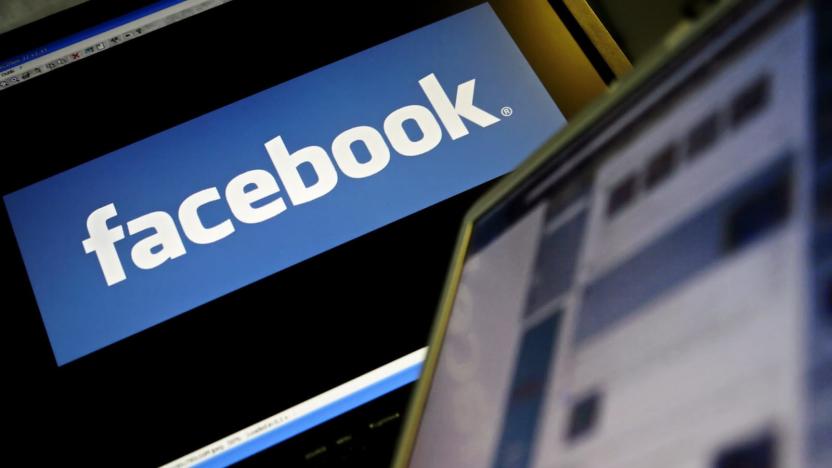
Facebook's News Feed change may amplify fake news
Facebook has been under fire since it was revealed just how big its "fake news" problem is. It's been taking steps to combat the issue and reestablish users' faith in the service. But now, it looks as though one of its most recent tweaks might have made things worse. The New York Times reports that in some countries where Facebook has been testing its latest News Feed changes, the tweaks have actually amplified fake news across the service. We've reached out to Facebook for comment.

Facebook is testing a dedicated section for local news
Facebook is testing a new section dedicated to local news and events, Recode reports. Called "Today In," it's currently being tested in six cities -- New Orleans, Louisiana; Little Rock, Arkansas; Billings, Montana; Peoria Illinois; Olympia, Washington; and Binghamton, New York. It's accessible through the menu button on the bottom right of the mobile app and will include stories from local publishers -- which will be approved by Facebook's News Partnerships team -- as well as emergency updates and local events.
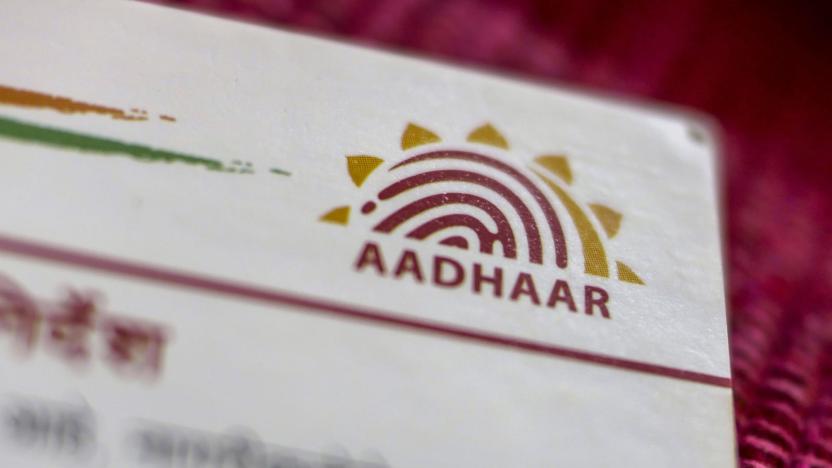
India's massive citizen database was reportedly breached
India's government Aadhaar database, which holds personal information of over one billion Indian citizens, was allegedly breached, BuzzFeed News reports. Along with demographic info, the database also contains biometric data like fingerprints and iris scans. Indian publication The Tribune reported earlier today that it was able to access any registered citizen's demographics after it was granted admin access by an anonymous individual. In just 20 minutes, a reporter was given an administrator ID and a password after contacting the individual through WhatsApp and transferring what amounted to less than $8. Afterwards, the reporter was able to plug in anyone's Aadhaar number and get their name, address, postal code, photo, phone number and email. For an additional $5, the reporter was also able to get software that allowed them to print an Aadhaar card with anyone's number.
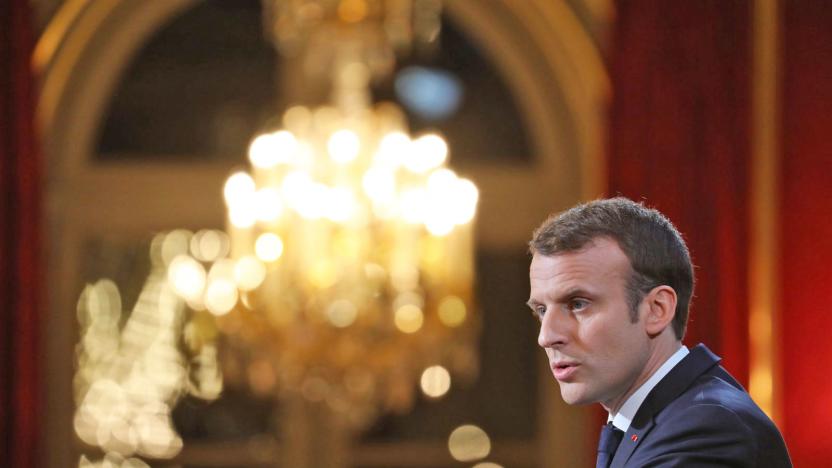
France considers new laws to fight fake news
During a media briefing yesterday, French President Emmanuel Macron said that he would soon introduce new legislation aimed at combating fake news during elections. Under the new law, websites publishing sponsored content would have to disclose who paid for it and fees for that content would have a cap. Additionally, authorities would have the power to remove fake content and block websites if they're found to be publishing fake news. "If we want to protect liberal democracies, we must be strong and have clear rules," Macron said.
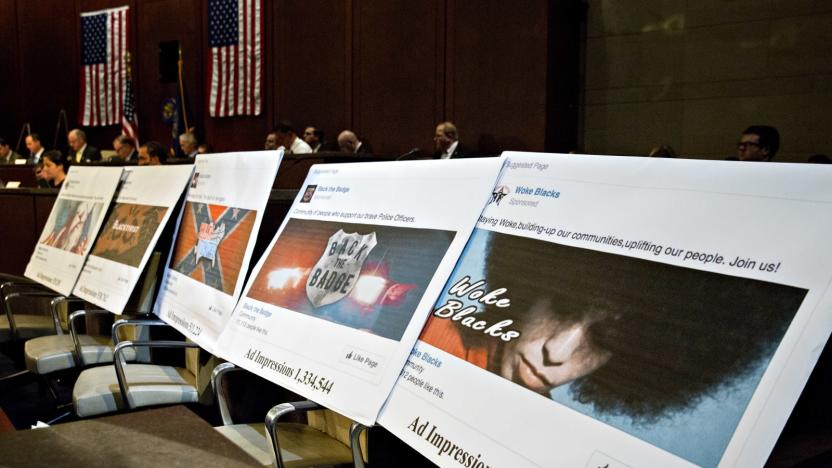
Facebook, Twitter and social media’s road to federal regulation
The extent of Russia's meddling in the 2016 US presidential election remains unclear, but it's no secret that social media played a major role. This year brought with it a great deal of scrutiny for tech giants, particularly Facebook, Twitter and Google. These three companies came under the US government's microscope after news that Kremlin bots and trolls, spearheaded by a group known as the Internet Research Agency, used their sites to tamper with the 2016 presidential election. They spread misinformation (fake news!) and dubious ads across Facebook, Twitter and Google to hundreds of millions of users in the US, with the aim of fomenting hostility among Americans. And it's safe to say they succeeded.

Facebook and Twitter could face UK ‘sanctions’ over fake news
The chair of a UK committee investigating fake news has threatened Facebook and Twitter with "sanctions" if they allow the issue to fester on their respective platforms. In an interview with the Guardian, Damian Collins, chair of the Department of Culture, Media and Sport select committee, said a political "mechanism" was needed to ensure companies monitor and swiftly take down deceptive posts. "There has to be a way of scrutinising the procedures that companies like Facebook put in place to help them identify known sources of disinformation, particularly when it's politically motivated and coming from another country," he said.
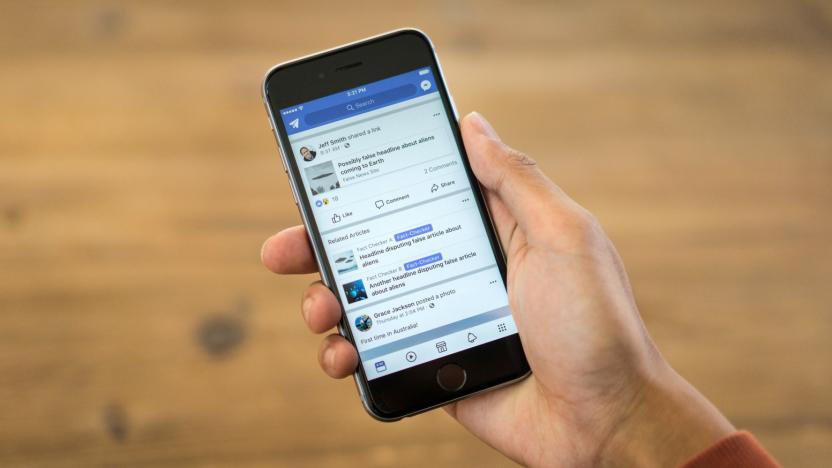
Facebook swaps fake article flags for fact-checked links
After getting dragged around the time of the general election, Facebook has spent much of this year taking steps to combat the spread of misinformation on its site. Transparency has been a staple of its mission, and so it's kept the public up to date with all the features and experiments it's juggling. One of these is the disputed flags stamped on articles identified as false -- first spotted back in March. But, it seems the feature isn't working as Facebook would've liked, which means it has to go. In a new post, the company claims it is ditching disputed flags in favor of an improved version of its related articles feature, which it originally began testing in April.
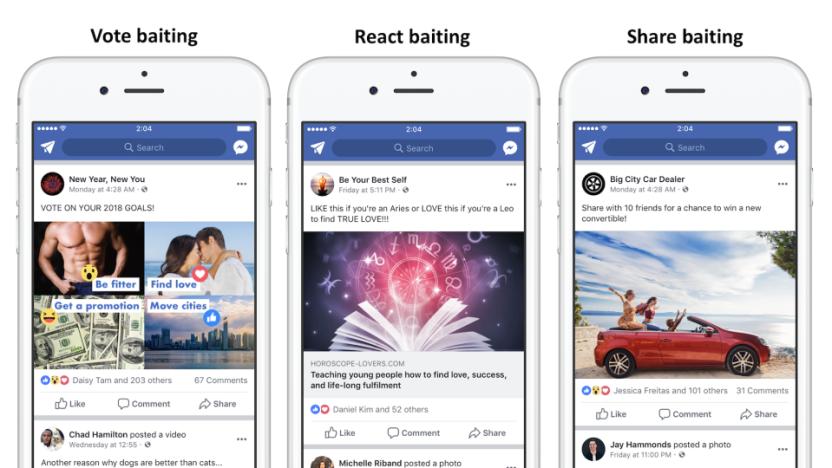
Facebook will begin demoting ‘engagement bait’ posts in News Feed
Scrolling through your Facebook News Feed, you'll probably come across posts telling you to like or comment if you share some sort of similar sentiment -- "LIKE this if you're an Aries!" -- or telling you to share it so you can earn a chance at winning a prize. Well, you might start seeing a lot less of those types of posts because Facebook is now cracking down on "engagement bait." Facebook said, "We will demote posts that go against one of our key News Feed values — authenticity...We want to reduce the spread of content that is spammy, sensational or misleading in order to promote more meaningful and authentic conversations on Facebook."

Google won't show news from sites that hide their country of origin
Google's ongoing quest to curb fake news now includes sites that are less than honest about their home turf. The company has updated its Google News guidelines to forbid sites that "misrepresent or conceal their country of origin" or otherwise are aimed at people in another country "under false premises." A Russian site trying to masquerade as an American news outlet shouldn't show up in your news results, in other words.

The true extent of Russian meddling in Brexit remains murky
In late October, Chair of the Digital, Culture, Media and Sport Select Committee Damian Collins called upon Facebook and Twitter to report back with any evidence of Russian meddling in the UK's vote to leave the EU. It's an evolution of the committee's inquiry into the problem of fake news, which Collins considers a pretty serious "threat to democracy." Responses from Facebook and Twitter have landed this week, and if you haven't been following along, it's safe to say Collins isn't particularly impressed with how deep the social networks are digging to identify the true scale of political misinformation and influence exerted by Russia.

Recommended Reading: Making a shed a top-rated destination on TripAdvisor
I Made My Shed the Top Rated Restaurant On TripAdvisor Oobah Butler, Vice If you've ever wondered just how many reviews on sites like TripAdvisor are fake, you're not alone. One writer took maters into their own hands to prove the extent of the issue by creating a fake restaurant in a backyard. Once it became popular on the site though, things escalated quickly.

The BBC will teach school kids how to spot fake news
Social networks and search engines are trying all manner of tactics to help users identify fake news, from flagging trusted publishers to relying on readers to spot misinformation. A new initiative from the BBC, however, wants to teach kids how to spot fake news for themselves, instead of relying on the front pages of the internet to do it for them. From March next year, the BBC will begin sending reporters to secondary schools and events, as well as release digital resources, to encourage teenagers to think critically about what they read online.

Google will downrank Russian state news agencies
The extent to which fake news is propagating the internet has become increasingly clear in recent months. In October Facebook revealed some 3,000 politically-charged adverts had been placed in crucial swing states in the US, while Freedom House this month demonstrated that governments in no less than 30 countries are creating content to distort the digital landscape in their favour. Russia's influence appears time and again in these stories, and Google is now preparing to take action by "de-ranking" the Russian news sites it believes is at the heart of the issue.
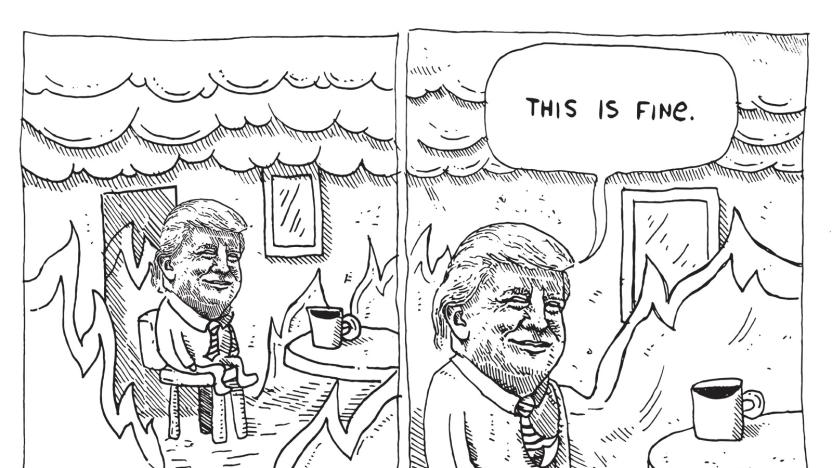
Digital democracy's steep decline
We thought the internet was going to be great for equality, freedom, and maybe even human rights, but now we're not so sure. Turns out, the internet is great for propaganda. And totally unraveling democracy. If only the people who invented and run everything we use online had thought of this! If only they had imagined someone using their social sites, apps, advertising networks, and comment systems to attack and oppress people of color, women, anyone who wants healthcare, and enemies of the state (the same thing, usually). They didn't think of these things because they were coding, developing, and seeking venture capital in order to make the world a better place. Also licking advertiser bootheels. And lobbying.
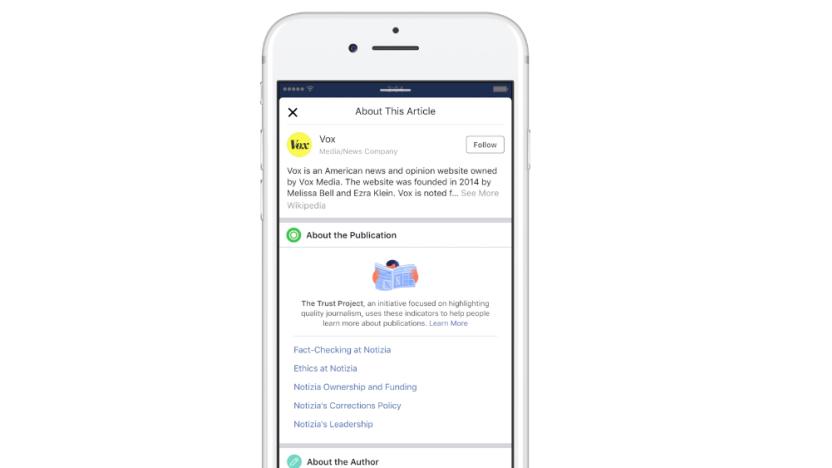
Facebook, Google and others add trust icons to tackle fake news
More than 75 major news outlets have agreed to use Trust Indicators on their content in a bid to stem the tide of fake news. Facebook, Google, Twitter and Bing will display the indicators on their sites as part of a partnership with The Trust Project, which aims to promote authentic fact-based journalism.

30 governments are interfering with democracy online
Political mudslinging is a concept as old as politics itself, but in recent years it's found its way off the podium and onto the internet, and a new report now shows the extent of the problem. According to findings from Freedom House, governments in no less than 30 countries are now "mass producing their own content to distort the digital landscape in their favor". Furthermore, these manipulation efforts may have affected elections taking place in 18 countries.
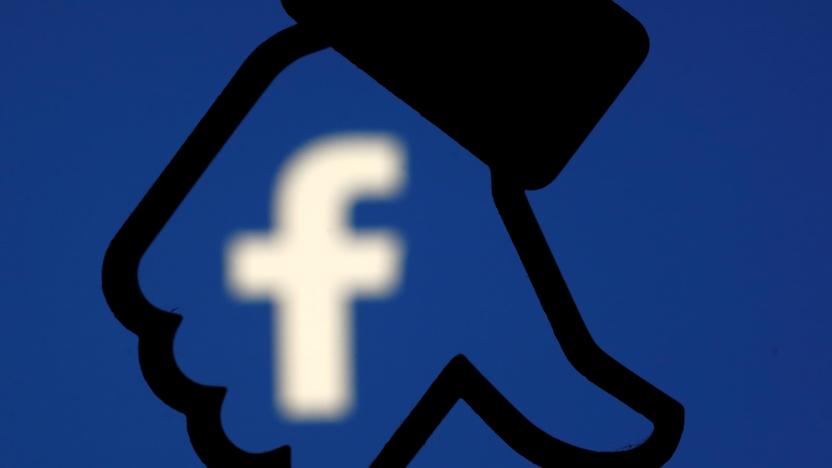
Facebook may be losing the fight against fake news
Facebook has made quite a few headlines when it comes to fake news. In September, it was revealed that Russian groups may have spent $100,000 or more disseminating fake news posts on the social media platform during the 2016 election season. The company has issued a new set of media guidelines that it hopes will improve the News Feed's algorithms and filter out fake news. However, now Facebook's fact checkers are speaking out, and their perspective is a grim one. According to The Guardian, Facebook's latest war on fake news has failed and the entire thing has become nothing more than a PR campaign.
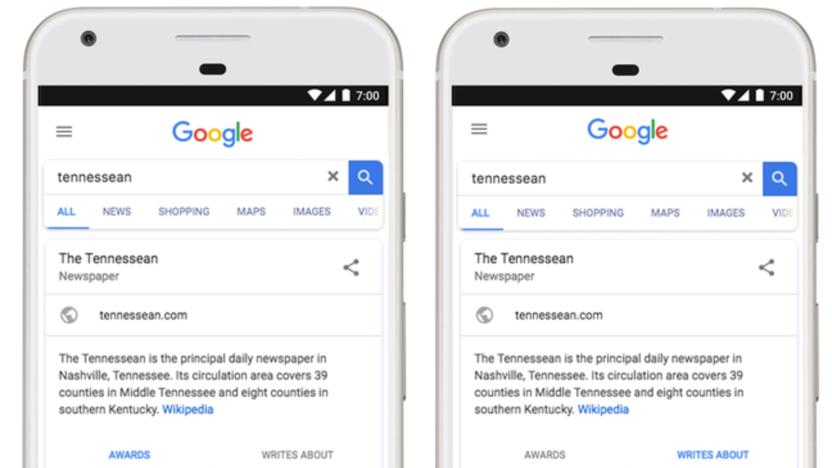
Google shows more publisher info in search amid fake news fight
Google's approach to combatting fake news divides pretty cleanly between overt tactics and less obvious methods. Today's announcement falls into the latter camp. Now when you search for a publication by name, cards will populate with all kinds of information on the publication or publisher's history. "These additions provide key pieces of information to help you understand the tone, expertise and history of the publisher," the blog post reads.











